Last Updated On 3 July 2025, 6:10 PM EDT (Toronto Time)
The Immigration, Refugees and Citizenship Canada (IRCC) is rolling out a significant increase in the cost of living funds required for a Canada study permit, effective September 1, 2025
The new increase of nearly 11% is aimed at ensuring international students are financially prepared for life in Canada and could impact your study abroad plans.
In this comprehensive guide, we’ll break down the new proof of funds requirements, compare them to previous standards, and explore how they stack up against other countries.
Whether you’re a solo student or bringing family along, we’ve got the details to help you prepare for a successful study permit application.
Let’s dive in and ensure you’re ready to embark on your Canadian academic adventure!
Table of Contents
Previously, the cost-of-living requirement was set at $20,635 for a single applicant (effective January 1, 2024), a significant jump from the outdated $10,000 threshold established in the early 2000s.
Now the IRCC has announced a major update to the financial requirements for international students applying for a study permit, effective from fall 2025.
Effective September 1, 2025, the minimum cost of living funds needed to secure a study visa (outside Quebec) will increase by 10.95% to better reflect Canada’s rising living expenses.
This adjustment is part of IRCC’s commitment to aligning the proof of funds with Statistics Canada’s Low-Income Cut-Off (LICO), ensuring students can thrive without financial strain.
However, with inflation and rising costs in housing, food, and transportation, the IRCC is once again raising the bar to ensure students are well-prepared for life in Canada.
The new minimum proof of funds (excluding tuition and travel costs) for applications submitted on or after September 1, 2025, is as follows:
| Number of Family Members (Including Applicant) | Funds Required Per Year (CAD, Excluding Tuition) Effective September 2025 | Current Amount of funds required per year (not including tuition) | Percentage Change |
| 1 person | $22,895 | $20,635.00 | 10.95% |
| 2 people | $28,502 | $25,690.00 | 10.95% |
| 3 people | $35,040 | $31,583.00 | 10.95% |
| 4 people | $42,543 | $38,346.00 | 10.95% |
| 5 people | $48,252 | $43,492.00 | 10.94% |
| 6 people | $54,420 | $49,051.00 | 10.95% |
| 7 people | $60,589 | $54,611.00 | 10.95% |
| Each additional family member | $6,170 | $5,559.00 | 10.99% |
Key Takeaway: If you’re applying for a study permit on or after September 1, 2025, you must demonstrate that you have these funds available in addition to your first year’s tuition and travel expenses.
For example, a single student will need at least $22,895 for living expenses, while a family of three will require $35,040 to cover their costs in provinces outside Quebec.
To satisfy the IRCC’s financial requirements, you must provide clear evidence that you have access to the required funds.
The following documents are accepted as proof of financial support:
Guaranteed Investment Certificate (GIC): A GIC from a participating Canadian financial institution is a popular option.
It ensures funds are secure and released to you periodically to cover living expenses.
Canadian Bank Account: Proof of a bank account in your name with transferred funds to Canada.
Bank Statements: Statements from the past four months showing sufficient funds.
Bank Draft: A draft convertible to Canadian dollars.
Student or Education Loan: Documentation of a loan from a recognized financial institution.
Sponsorship Letter: A letter from an individual or institution guaranteeing financial support, backed by their bank statements or income proof.
Scholarships or Funding: Evidence of scholarships or enrollment in a Canadian-funded educational program.
Important Note: The IRCC does not access or use these funds.
They are meant for your living expenses and are released to you after arriving in Canada.
Ensure all documents are in English or French, or include certified translations, to avoid delays or rejection.
Canada’s updated cost-of-living requirements position it as a competitive yet demanding destination for international students.
Here’s how the new $22,895 minimum for a single applicant (effective September 1, 2025) compares to other popular study destinations:
- Australia: Requires approximately $21,826 CAD for living expenses, slightly lower than Canada’s new threshold.
- New Zealand: Demands about $20,340 CAD, making it marginally cheaper than Canada.
- United Kingdom: Living expenses range from $15,680 to $20,447 CAD, depending on the location.
- United States: Requires a minimum of $10,000 USD (approximately $13,500 CAD), significantly lower than Canada.
- Denmark: Only requires about $1,175 CAD, one of the lowest among developed nations.
While Canada’s requirements are higher than some countries, they reflect the country’s commitment to ensuring students can afford a comfortable lifestyle while pursuing their education.
The higher threshold also aligns with Canada’s relatively high cost of living, particularly in urban centres like Toronto and Vancouver.
At first glance, the increased financial requirements might seem daunting, but they’re designed to set you up for success.
Here’s why:
Realistic Financial Planning: The previous $10,000 threshold was woefully inadequate, leaving many students struggling to afford rent, food, and other essentials.
The new $22,895 requirement better reflects the true cost of living in Canada, ensuring you’re financially prepared.
Reduced Exploitation: Insufficient funds often forced students into low-paying jobs or exploitative situations.
The higher threshold minimizes this risk, allowing you to focus on your studies.
Annual Adjustments: By linking the requirement to LICO, the IRCC ensures that future increases will keep pace with inflation, protecting students from unexpected financial burdens.
Enhanced Study Experience: With adequate funds, you can enjoy Canada’s vibrant culture, explore its natural beauty, and engage in academic opportunities without financial stress.
For example, a single student with $22,895 can comfortably cover rent (around $1,200–$1,800/month in major cities), groceries ($300–$500/month), transportation ($100–$150/month), and other expenses, leaving room for occasional leisure activities.
If you’re planning to study in Quebec, the financial requirements differ due to the province’s unique immigration policies.
While the IRCC oversees study permits, Quebec sets its own cost-of-living thresholds.
As of 2023, the requirements for Quebec were:
- One person (18 or over): $14,349
- One person (under 18): $7,176
- Two people (18 or over): $21,046
- Two adults and one child: $23,575
- Two adults and two children: $25,444
The 2025 requirements for Quebec are expected to be updated soon, so check the official IRCC website or Quebec’s immigration portal for the latest figures.
If you’re applying to a Quebec institution, ensure you meet these specific requirements in addition to the IRCC’s documentation standards.
The 2025 Canada study permit cost-of-living update is a bold step toward ensuring international students are financially equipped to thrive in Canada.
While the new minimum of $22,895 for a single applicant may seem steep, it reflects the true cost of living and protects students from financial hardship.
By planning ahead, securing the right documents, and understanding the requirements, you can set yourself up for a successful study permit application and an unforgettable Canadian experience.
You may also like: 5 New CRA Benefit Payments Coming In July With An Increase
New GST Payment To Be Sent On July 4 With An Increase
New Canada Child Benefit Payment Increase Effective July 2025
New Canada LMIA Work Permit Wage Increase Effective June 27


